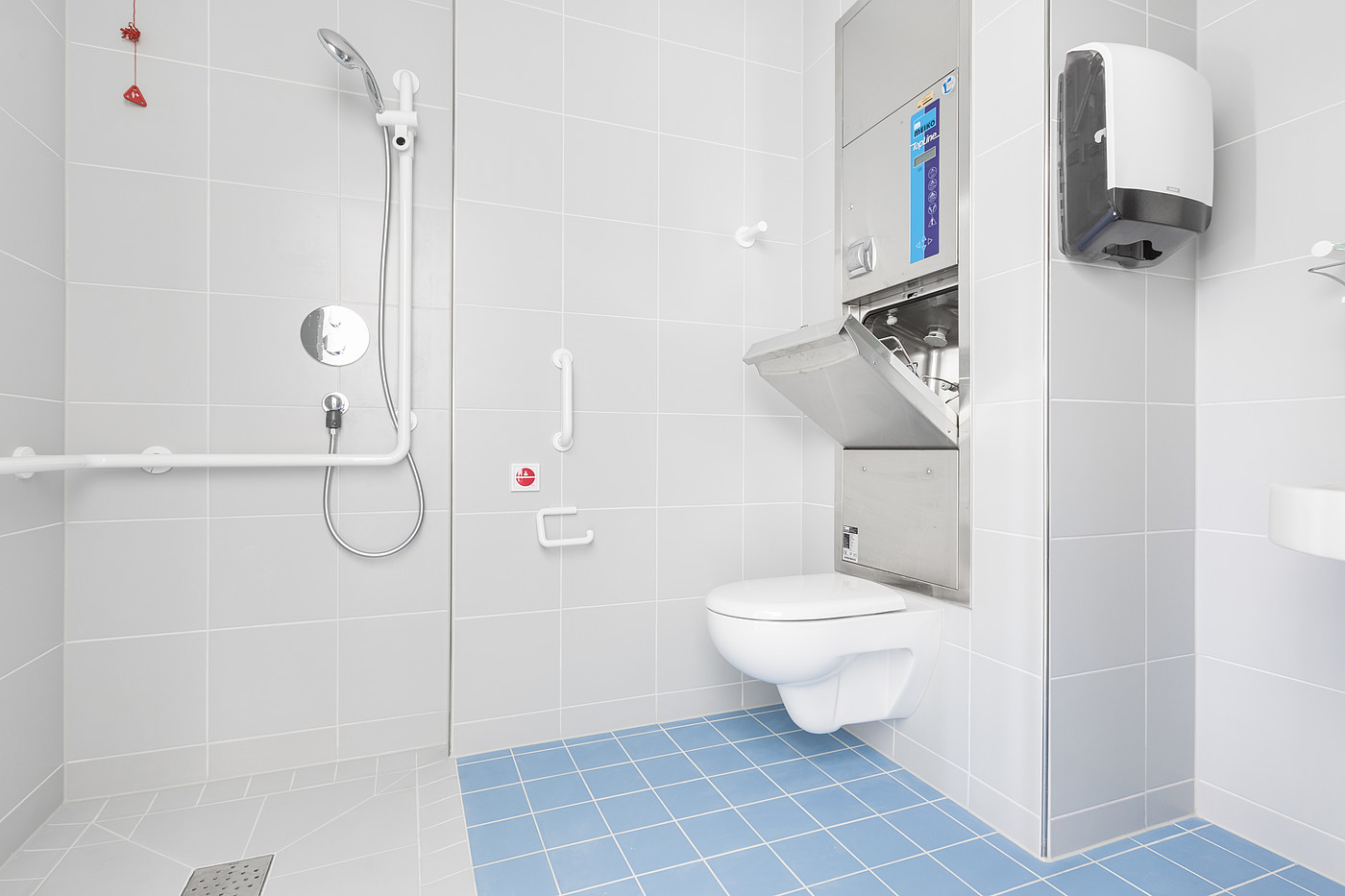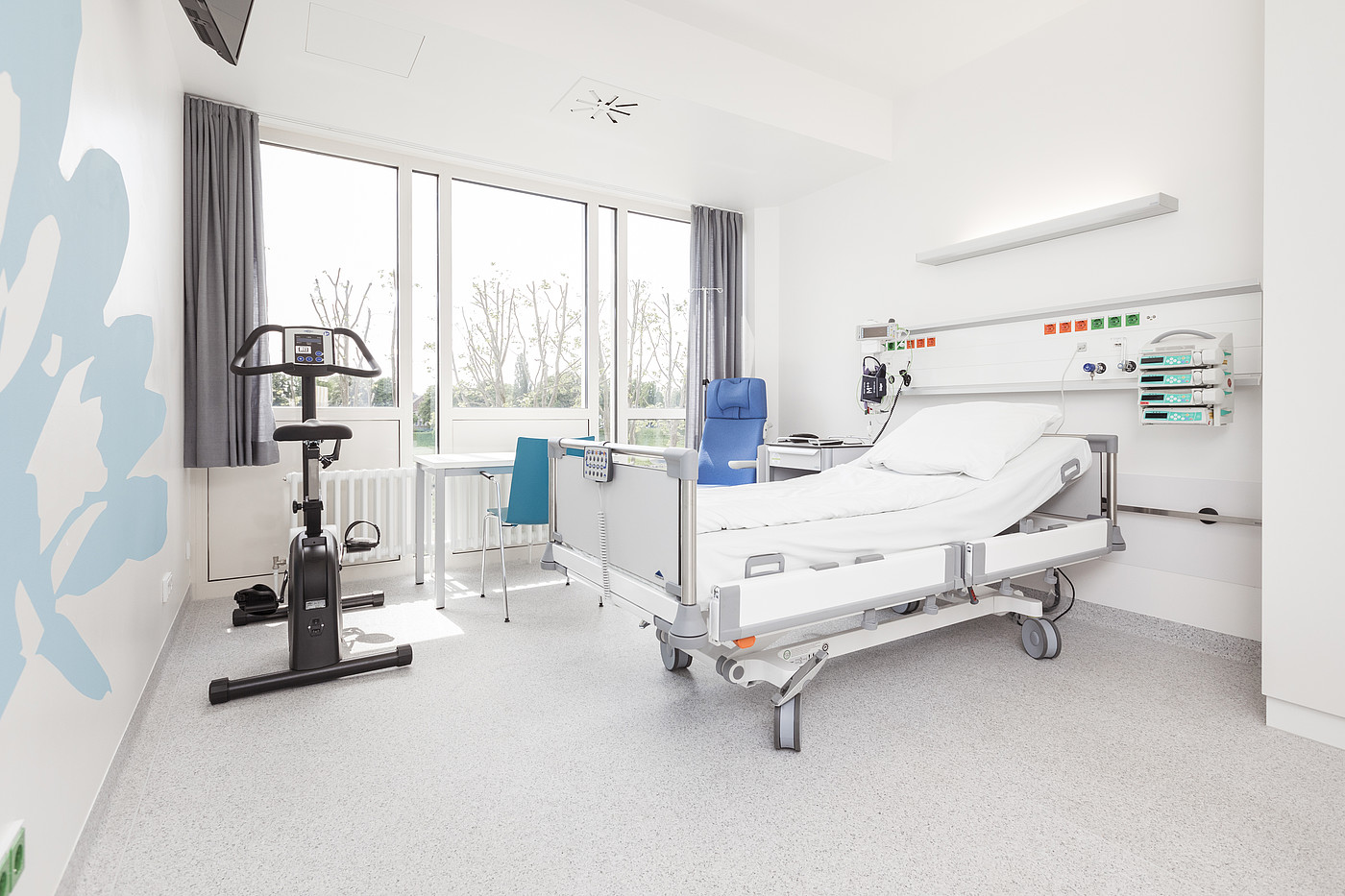You are here
Content
Centres of excellence:
- Diagnosis and treatment of benign and malignant disorders of the haemopoietic system
- Medication-based tumour therapy
- Stem cell transplant/leukaemia therapy
- Myeloproliferative neoplasia
- Myelodysplastic syndrome
- Chronic myelogenous leukaemia
Stem cell transplants
Highest degree of safety with more freedom of movement
The transplantation of stem cells is often the only possible cure for people suffering from leukaemia. The University Hospital Mannheim is one of the leading centres in Germany for the treatment of certain forms of blood cancer, for example myelodysplastic syndrome (MDS) and myeloproliferative neoplasia (MPN). The University Hospital Mannheim has consolidated this specialist knowledge and founded one of the most modern transplantation centres in the world with state-of-the-art techniques and technology. Every year up to 60 patients can receive stem cells from the bone marrow of donors – under conditions offering the highest degree of safety and protection. “Allogenic stem cell transplantation is the most radical procedure known in medicine”, says Dr Stefan Klein, Director of stem cell transplantation in Medical Clinic III. “The patients receive a completely new immune system. It is comparable to deleting the operating system of a running computer and installing an entirely new one.”
New benchmarks in hygiene
After the transplantation procedure, the transplanted stem cells take some time to develop new blood formation. The immune system is practically switched off in the first few weeks following the transplant. For this reason the highest priority at this stage is to protect the patients from pathogenic agents. In order to ensure this the new centre utilises the highest possible hygiene standards. In many cases it even sets the benchmark, for example in its sanitary facilities: “The shower drain has been developed specifically for the wards in this centre”, emphasises Dr Klaus-Peter Becker, the head of hospital hygiene in University Hospital Mannheim. “The innovative component part prevents the patients from being infected by any germs in the waste water”, Dr Becker explains.
Transplantation procedure with secured air segment
In addition to the highest possible degree of safety the centre also provides its patients with a pleasant atmosphere in eight light, spacious rooms with the focus on enabling them to enjoy considerably more freedom of movement. Nowadays it is still usual in most cases for patients to stay in their rooms for approximately six weeks in the acute stage directly following the transplantation procedure. “Otherwise in conventional facilities there would be too great a risk of being exposed to pathogens”, as the hygiene expert Dr Becker explains. However, this is different in the new Mannheim centre. Dr Klein describes the increase in patient comfort as follows: “Here our patients can move more freely because the whole centre forms a secured air segment which is protected from outside influences by a special filter system, several access valves and a slight overpressure.”
Context Column
About the International Patient Office
The International Patient Office (IPO) welcomes patients from all over the world and assists with requests for medical treatment. Click here to read more about the IPO.



